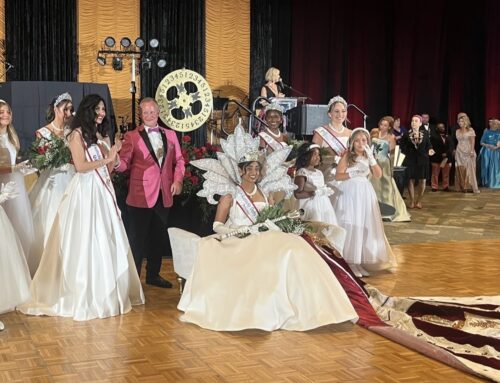By Tyler Mercer–

Sign ups took place last week so that students could try to pick out the best spots between vacancies at Cardinal Towne, The Province and The Bellamy. After these spots were filled, only the options of living in a nearby hotel or moving back in with parents remained.
For those who chose to move back in with their parents, the university offered them refunds for their housing costs. For those who moved to other locations, there was no addition fee even though prices at Cardinal Towne, The Bellamy and The Province cost more each semester than Miller Hall.
During visual inspections last month, mold was not found in Miller Hall, reported Phillip Bressoud, Executive Director of Campus Health Services, at a media address on Oct. 10. Over fall break, however, mold was found to be growing and spreading all throughout 80 percent of the residence hall.
An email sent to the student body from the Office of Housing and Residence Life read, “Aspergillus and Penicillium-like mold spores were the most common spores found in the rooms.” Bressoud also reported that, as of now, there are no indications that the mold found in Miller Hall has caused any illnesses to residents.
Aspergillus and Penicillium are only a health hazard for those individuals already affected by asthma, allergies or preexisting respiratory problems, reported Dean Michael Mardis. President Ramsey said, “…our top priority is the health and wellbeing of our students.”
“I was a little upset when I first found out about the mold, but at the same time I was thankful that the housing staff was so accommodating to me in both instances,” said Dallas Kneirman, previously a resident of Miller Hall. “I would much rather be moved from a room that poses a health risk than not be informed and be left there.”
The Centers for Disease Control and Prevention website describes Aspergillosis, an infection caused by Aspergillus, as being very rare. Specifically saying, “Because Aspergillosis is not a reportable infection, the exact incidence is difficult to determine; however, population-based data from San Francisco suggest a rate of 1 to 2 cases per 100,000 people per year.”
Both Aspergillosis and Penicillium are used commercially. Aspergillosis is often used during the fermentation process of alcoholic beverages such as the Japanese sake. Penicillium is used in many food products and, more famously, in the production of penicillin.
“I’m excited to move I just wish it was a bit more organized,” said Rachel Vaughan, freshman pre-music therapy major. Vaughan also said, “Personally I do not want to move back into Miller, especially with this experience!”
While some students may be excited to live in a different location for the duration of the fall semester, some students aren’t as pleased. Jennifer Lyle, a freshman pre-pharmacy major, said, “I’m really not happy about being forced to move from my room that I was getting used to. It’s really inconvenient to have to pack everything up and then be moved half-way across campus.”
Shannon Staten, Director of Residence Administration, reported that other residence halls are being inspected for mold. Staten also reported that students living in Miller Hall will not be required to pay for any charges that occur due to moving expenses, new housing, etc.
The estimated cost of moving and housing students and clean up of the mold is still undetermined for the university. However, Dean Mardis did confirm that the University of Louisville will be partnering with National Environmental Contracting Inc. to clean up the mold.
[email protected]
Photos: Tricia Stern/The Louisville Cardinal




